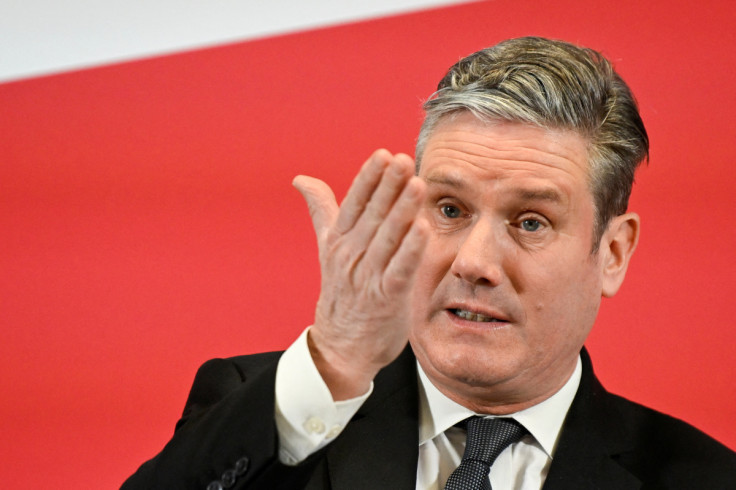Sir Keir Starmer's Meeting With Macron Sparks Debate Over UK-EU Relations and Brexit Demands
The meeting between Sir Keir Starmer and President Emmanuel Macron, scheduled for Tuesday, is expected to revolve around the post-Brexit landscape and the potential for renegotiations with the EU.

Sir Keir Starmer, the leader of the Labour Party, is set to meet French President Emmanuel Macron amid concerns from experts that he may be pushing for concessions from the European Union (EU) that they might be unwilling to provide.
This meeting is scheduled to take place in Paris on Tuesday and is expected to focus on post-Brexit relations, taking into account the ongoing debate over potential renegotiations with the EU.
Additionally, the UK in a Changing Europe (UKICE) research group has released a new report that suggests reducing trade barriers using the existing Trade and Cooperation Agreement (TCA) will be a formidable challenge.
In an interview with the Financial Times, Sir Keir Starmer hinted at his intention to seek a more favourable deal for the UK during a reassessment of the agreement in two years' time. The TCA, signed by former Prime Minister Boris Johnson, is slated for its first five-year review in 2025, although the scope and specifics of these talks remain uncertain.
UKICE emphasises that the UK will need to provide the EU with a compelling reason to reconsider its stance since the EU is currently content with the existing partnership.
One potential avenue highlighted in the report is closer alignment on veterinary standards to facilitate trade, a priority that Labour has emphasised.
However, the report also underscores the complexity and lengthiness of potential new negotiations, which could be further constrained by domestic issues such as the economy and the National Health Service (NHS). Experts caution that a review could potentially exacerbate tensions over implementation issues and the EU may prefer a more technical reevaluation.
Anand Menon, the director of UKICE, remarked on the challenge ahead for Sir Keir Starmer, stating: "Keir Starmer's desire to secure a 'much better' Brexit deal for the UK is all well and good. However, he failed to explain how tinkering with the Trade and Cooperation Agreement will make a meaningful economic difference."
The director of UKICE continued saying: "Moreover, he runs the risk of demanding more than the European Union is willing to give. The UK is not a priority for the EU, which remains relatively happy with the TCA. The key for a Labour government will be figuring out a way to provide the EU with an incentive to restart negotiations over Brexit."
The UKICE report suggests that Labour must present a more detailed plan demonstrating its seriousness as a negotiating partner with a realistic grasp of the issues at hand. It recommends refining the party's long list of ideas into a more coherent set of goals.
Sir Keir Starmer's visit to Paris is part of Labour's efforts to enhance its global profile in anticipation of a likely general election next year. Simultaneously, Shadow Defence Secretary John Healey will be in Washington DC, where he plans to advocate for increased cooperation between the US and the UK to safeguard democracy.
He will propose the establishment of a "democratic resilience centre" jointly led by the two nations to protect shared values and monitor threats. This centre would also be open to other NATO allies and could potentially pave the way for a full-fledged NATO body dedicated to this purpose.
During their visit, Mr Healey and Shadow Foreign Secretary David Lammy will engage with officials from the White House, the US Department of Defense and the US Department of State. Mr Healey stressed the importance of the US-UK alliance in matters of defence and security and called for vigilance ahead of the UK general election and the US presidential election in 2024.
This series of overseas engagements by Sir Keir Starmer and other Labour officials comes ahead of the party conference season. Last week, Starmer met with fellow centre-left leaders in Montreal, Canada, including Prime Minister Justin Trudeau. This visit followed talks in The Hague with Europol officials about the issue of people-smuggling gangs profiting from small boat crossings in the English Channel.
© Copyright IBTimes 2025. All rights reserved.






















